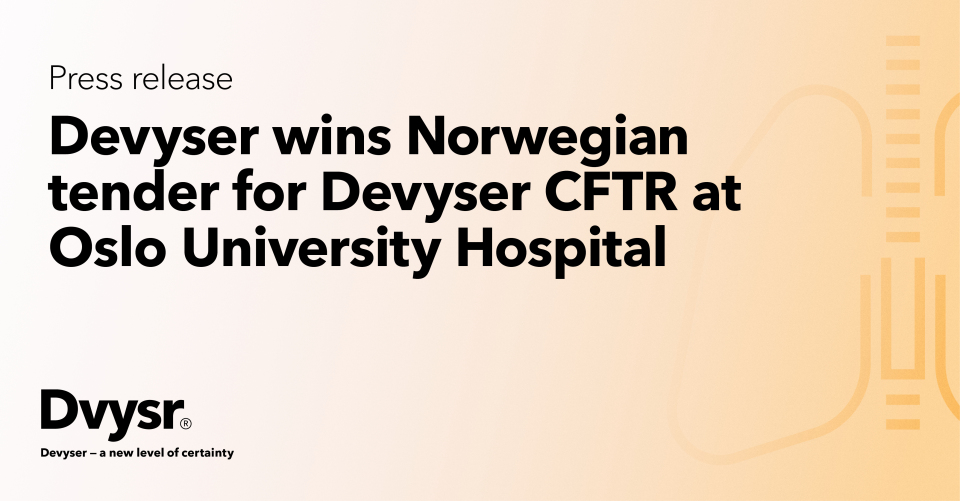Devyser acquires Swedish company Cybergene AB and strengthens its position in the aneuploidy market
Devyser Diagnostics AB (publ), a Swedish molecular diagnostics company, today announces that it has...
Rapid aneuploidy analysis

Rapid aneuploidy analysis | October 3, 2022
A recent paper published by Malan et al in the Journal of the American Medical Association (JAMA) describes a clinical study conducted over two years looking into the potential for reducing risk of miscarriage when performing cell-free fetal DNA (cfDNA) testing, NIPT testing, as compared to invasive fetal testing procedures.
It has been hypothesized that invasive testing procedures could pose a risk to the fetus, increasing the rate of miscarriage and that by conducting cfDNA screening first, invasive testing could be limited to those testing positive, reducing the overall number of invasive tests performed to at-risk pregnancies potentially reducing the risk for miscarriages induced by the invasive testing procedure. In this study the tests were conducted for pregnancies with a high risk of trisomy 21.
In all, 1997 women completed the study. The study observed that the miscarriage rate for both groups was 0.8%, representing no statistically significant risk reduction for NIPT testing compared to invasive procedures. Although this was the first randomized trial to directly compare NIPT with invasive testing, the results confirm those published earlier by Wulff et al. (2016)(147,987 pregnancies) and Akolekar et al. (2015)(42 716 pregnancies). These studies concluded that invasive procedures present a much lower, or no significant increased risk compared to non-invasive procedures in risk pregnancies.
References:

Devyser Diagnostics AB (publ), a Swedish molecular diagnostics company, today announces that it has...
Read More

Devyser today announced that it entered a strategic agreement with Illumina, a global leader in DNA...
Read More

Devyser is proud to announce that the company has been awarded a tender by Oslo University Hospital...
Read More

Devyser, a leading provider of advanced genetic testing solutions, has been awarded a new tender in...
Read More